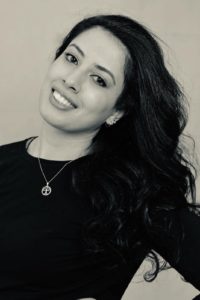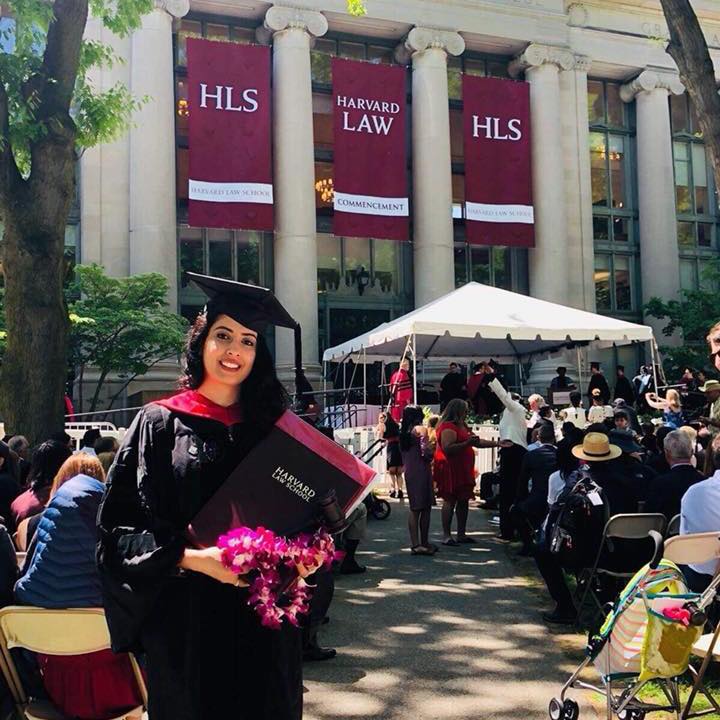Blog
Unveiled!
My Truth NOT My Hijab!

It took me more than two years to summon the courage to share my talk #Why_I_Dress_Like_This, which I gave whilst studying at Lady Margaret Hall, University of Oxford. I had convinced myself that the main reason behind the delay was that I didn’t want to be distracted during my post-graduate degrees at Oxford University and Harvard Law School. To be honest, the real reason was fear. Fear that my personal story might be seen as irrelevant. Fear that my words would be distorted on social media, and used as propaganda to inflame political, cultural, and religious differences.
A good male friend of mine who saw the talk advised me against releasing it: “When there is a massacre, we should talk only about the massacre.” He was referring to the devastating war happening in Yemen. For a while, I agreed with him.
But then I remembered my sisters in Yemen telling me how they, along with other Yemeni women, would wrap their bodies in layers of clothes at night so if their houses were bombed by a Houthi missile or a Saudi airstrike while they sleep, their bodies would be covered. They would have a “dignified death”. I remembered when my brother’s home caught fire a long time ago; how we rushed around the flat, looking for our hijabs to protect our “reputation and honor,” even before finding the kids to save them from the fire. Underneath, we were horrified the next day when stories told were of the women who ran into the street without their hijabs, rather than how devastating the fire was. I remembered the Syrian woman who, while being pulled out of the wreckage of her bombed home covered in dust and blood, was pleading for the rescuers to cover her hair. Her video went viral as people commended her concern about the Hijab, over and above condemning her death. Simply put, as a woman we don’t even have justice in pain. In death as in life, our bodies are what define us. Going back to my friend’s comment – if others expect women to talk only about the massacre, then they should, in turn, expect women to worry only about the massacre when we are experiencing it or shedding light on it, and nothing else. Don’t make us worry about a piece of hair or a part of flesh that might appear. I wish to die as a human being, caring only about pain and suffering as a human being, not adding my female body to my concerns. Many Yemenis ask women in the public sphere to talk about the big issues of war, famine, economic collapse, etc. When we do, they come after us for what we wear and how we look!
Moreover, amidst the toxic environment on social media, my second fear is that some people might use my words in their cultural wars. Western far-right groups could use the fact that I took off my hijab in the U.S. to validate their perception that the West allows “oppressed” Muslim women to be liberated. Islamic conservatives may use the same fact to accuse me of becoming “Westernized”, going against my religion and culture. More troubling to them, how dare I, a woman, interpret the Qur’an myself. Others may castigate the privilege I have from growing up in a family supportive of women, and being able to earn a degree at a top international university. But little do they know the painful journey that I have taken to reach this stage. Challenging social norms is something even supportive families might find difficult to grasp. That is why I decided to share my story.
When I unveiled the Niqab it was more of a manifestation to unveil the personal “struggles” behind the big concepts of religious beliefs, liberal principles, philosophical concepts and cultural norms. The human face behind these concepts seems to be overshadowed by abstract policy discussions and decisions. It is not about being right or wrong; it is not about being modern or backward; it is about the untold realities of our daily lives. I also want to show how much thought and effort goes into what is seemingly a simple daily routine. Dress determines so much of how people act towards women: no matter where we are, rarely are our words taken solely on their merit. It frustrates and exhausts my heart and mind to see women in the public sphere forced to spend time worrying about dresses and hair, while we bleed in our advocacy for justice, and prosperity for all.
On May 24, 2018 I became the first Yemeni citizen to ever earn a degree from Harvard Law School. As pictures of the graduation were shared, they quickly went viral on Yemeni social media. Many people celebrated, but the overwhelming majority attacked and discredited my achievement because I was not wearing a Hijab. Yet a month later, my participation on a legal panel in Washington DC to discuss the Yemeni conflict was met with much praise. I was the first to highlight one aspect of the conflict currently missing from the international narrative – the aspect of assumed supremacy. Furthermore, I was able to place a Yemeni voice on the concerns of what a potential solution could look like.

I am happy to see many people focusing more on content than on my appearance, but at the same time, I am deeply conflicted. People seem to accept me as long as I represent a national cause, and in turn, their own struggles and pain. But they do not accept me when I represent myself. Many people ask women to acknowledge and represent others’ pain, yet at the same time they expect us to ignore and neglect our own struggles. Every woman in the public eye faces two kinds of battles: the national battle of politics, and the personal battle of being a woman. It would be wrong for one to overshadow the other. As we strive to bring political and legal justice, let’s not forget that where it all starts: with social and personal justice. My hope is that people will watch the entire talk, and walk with me on my journey. For I do not represent anyone, but myself. I am simply a seeker of the truth which I envision as an indefinite puzzle whose pieces lay within every soul and scattered among us all.